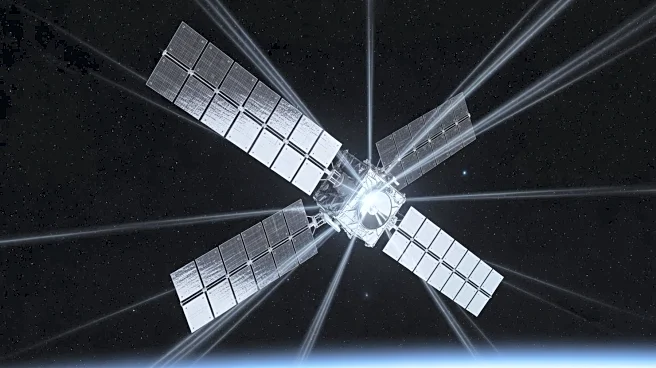What's Happening?
Reflect Orbital plans to launch 4,000 mirrors into space to increase solar farm efficiency by extending daylight. These mirrors could shine four times brighter than the full Moon, potentially disrupting
astronomical observations. The project aims to direct beams of light to specific areas, but concerns arise over light scattering, which could affect visibility over large areas. The initiative is seen as beneficial for renewable energy but problematic for astronomy, as it could exacerbate light pollution and disturb local wildlife.
Why It's Important?
The project highlights the tension between technological advancements in renewable energy and the preservation of astronomical research. While increasing solar farm productivity is crucial for sustainable energy, the potential impact on astronomical observations could hinder scientific progress. The initiative raises questions about balancing technological innovation with environmental and scientific considerations. The outcome of this project could set precedents for future space-based technologies and their regulation.
Beyond the Headlines
The plan underscores the broader issue of space commercialization and its implications for scientific research. As private companies increasingly venture into space, the need for regulatory frameworks to address potential conflicts with scientific and environmental interests becomes more pressing. The project also reflects the growing challenge of managing space traffic and light pollution, which could have long-term effects on both terrestrial and space-based observations.










